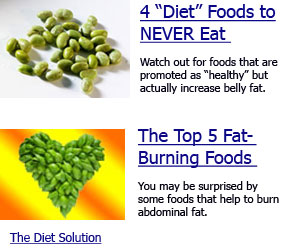
Vitamin C and Pomegranate Effectively Prevent and Treat Heart Disease
Friday, October 15, 2010 by: John Phillip, citizen journalistSee all articles by this author
Email this author
| |
| ||||||||||
Inflammation Initiates Heart Disease
Systemic inflammation is one of the primary metabolic processes underlying heart disease as it causes instability in the delicate inner endothelial lining of the coronary arteries. Chronic inflammation causes elevated blood levels of C-reactive protein and studies have shown that the protein is an important marker for heart disease risk.
The flames of inflammation are fanned by a processed diet high in hydrogenated fats and refined carbohydrates. This in turn generates excess triglycerides and oxidized LDL cholesterol in the blood and promotes fat storage in the adipocytes around the abdomen. Metabolically active fat cells secrete chemical messengers known as cytokines, C-reactive protein and the hormone cortisol. This is a protective action evolved by our body to handle short term damage and stress that becomes destructive when levels are chronically elevated.
Vitamin C Lowers Inflammation Markers
Vitamin C is an essential nutrient known to prevent scurvy. Evolutionary scientists know that in our distant past, we were able to synthesize the vitamin internally but lost the capability likely due to plentiful supply from our diet. The importance of vitamin C to our health was highlighted by the work of Nobel Prize winning researcher Linus Pauling, who showed that the nutrient could be combined with the amino acids lysine and proline to create a powerful agent capable of removing arterial plaque.
The results of a study conducted by the University of California Berkeley and published in the journal Free Radical Biology and Medicine demonstrate the power of vitamin C to lower inflammation by moderating levels of C-reactive protein. Study participants supplemented with 1000 mg a day of vitamin C and were able to reduce C-reactive protein levels by 34%. Vitamin C provides a significant reduction in C-reactive protein levels that translate to lowered risk of cardiovascular disease and heart attack.
Pomegranate Improves Blood Flow to the Heart
Blood flow to the heart becomes slowly constricted over time as our arteries stiffen and become thicker; this is due to increased blood pressure and metabolic imbalance from high blood sugar and insulin resistance. Arterial hardening is recognized as a significant cause of heart disease as the muscles that line the endothelial wall constrict, meaning the heart has to pump harder to force blood to all parts of the body. Eventually hardened arteries lead to heart failure and death.
Pomegranate has been shown to reverse the signs of arterial stiffening as it relaxes the endothelial muscles that control blood flow to the heart. The results of a study published in the journal Clinical Nutrition show that after 3 months of supplementation with pomegranate extract, arterial wall thickness decreased by 35% and dangerous LDL cholesterol oxidation was reduced by 90%.
Nature has provided us with powerful nutrients which we can use to prevent the ravages of heart disease. Combined with proper diet and physical activity, vitamin C and pomegranate can help us to live long and productive lives.
Reposted From NaturalNews


















